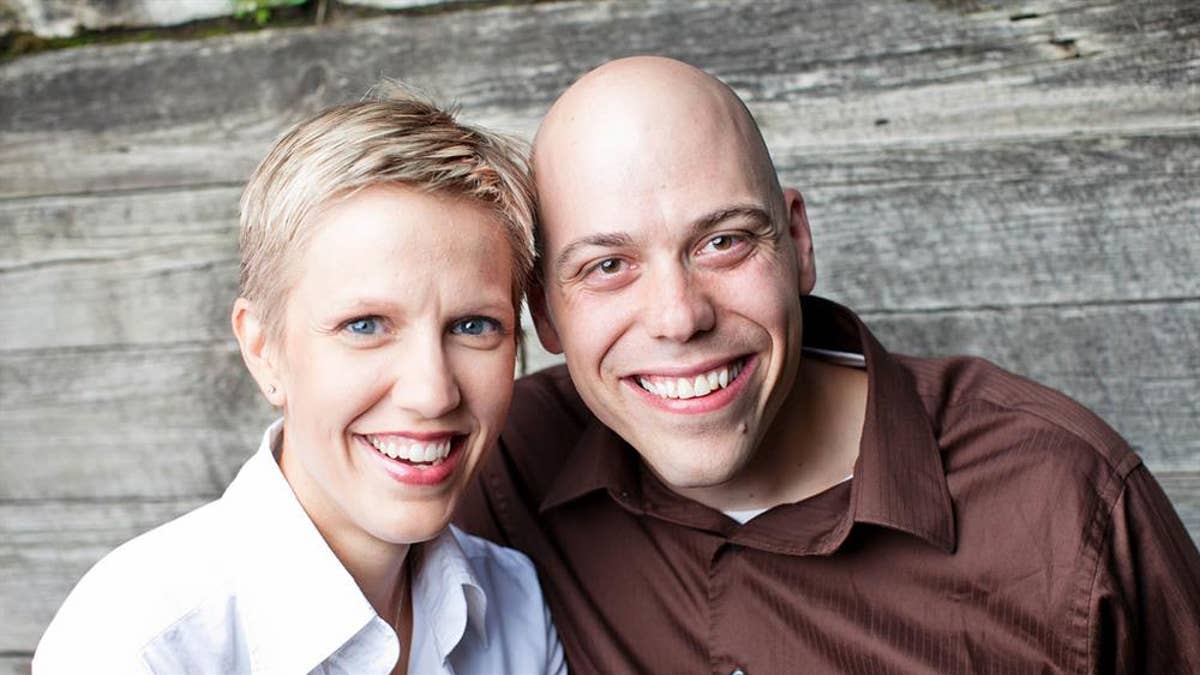
Author Angel Larsen and her husband (Courtesy: Alliance Defending Freedom)
Loving big is a way of life around our house. Everyone is welcome. Just last week, we had students from Zimbabwe, South Sudan, Japan, Liberia, Saudi Arabia, Pakistan, Iran, and Mali around our table. We’ve made our goal to fill our home as often as possible with people who are different from us—to learn, to laugh, and to grow—but you might not get that impression if you Google our business or check out my personal Facebook profile.
That’s because 10 months ago, my husband and I filed a federal lawsuit challenging the constitutionality of a Minnesota law that would require our small business to celebrate same-sex marriages if we enter into the marriage industry at all.
As Christians, we’d love to use our talents as filmmakers to celebrate the goodness of marriage as taught in the Bible though our work, but the state has made it clear that if we don’t promote all messages about marriage, we’ll face enormous fines, and even up to 90 days in jail, simply for living according to our convictions.
Since then, we’ve received a staggering amount of messages wishing death, disease, and poverty on us, our family, and even some of our closest associates all because we challenged the idea that the government shouldn’t have the power to silence or threaten anyone for not promoting all messages.
So when a federal judge ruled in our case, and equated our request to protect our conscience to posting a “White Applicants Only” sign in our window, we were both hurt and deeply offended. Like most people in the expressive professions, we work with all people; we just can’t promote all messages.
A person’s protected status is irrelevant to these types of message-based decisions. For example, an atheist print-shop owner is no more guilty of religious discrimination for declining to design a T-shirt for a Christian that proclaims “God exists” than we are guilty of sexual orientation discrimination for declining to create films promoting messages about marriage with which we disagree.
Not just our business practices, but our whole lives, run counter to the “whites only” analogy. Two of our sons are adopted from Ethiopia. Our youngest child is half Cameroonian and half Native American. And having eight children means we can’t afford to travel the world, so we bring the world to us. We do this precisely because we believe beauty exists in the diversity of God’s creation.
In fact, several years ago we intentionally began to stay home on holidays so that we could celebrate with people who would otherwise have no place to go. This has included spending Christmas with an alcoholic Vietnam veteran, a bisexual international student, and yes, even Trump supporters, among many, many others. We love all people. We work with all people. We simply don’t promote all messages.
But the irony of it all is that every single person operates this way. Nobody wants to be forced to promote messages—via custom artistic expression in our case—or have to repress their own speech just because their opinion is unpopular in the eyes of the government.
If the First Amendment only protects speech that is popular in its cultural day, then it really doesn’t protect any speech.
This is why we’re appealing the court’s ruling. This case is about preserving the freedom of all people to live according to their sincerely held beliefs—a principle we all should be able to support.
We are all on a journey with our convictions. I wish I could invite you into our home and discuss it over one of my daughter’s amazing homemade lemon tarts. But until that can happen, no matter where you are on that path or what you believe about marriage, we should all be able to agree that living peacefully according to our deepest convictions without the fear of government punishment is best for everyone.








































